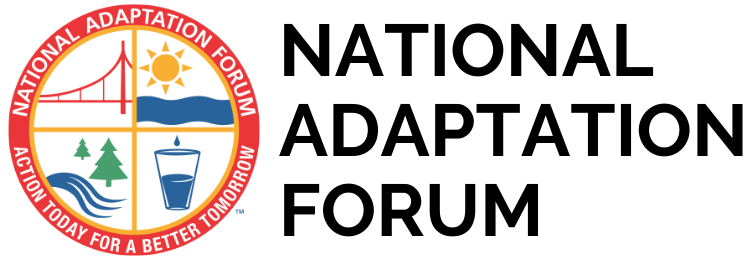
About the Series
Increasing temperatures create challenges for urban and rural communities, as well as for ecosystems. Explore solutions being implemented around the country in this National Adaptation Forum series, brought to you by EcoAdapt.
Session Descriptions
Session One: Community-based solutions to heat in urban settings
SPEAKERS
Christine Knapp, Director, Office of Sustainability, City of Philadelphia
Cheyenne Flores, Climate Resiliency Fellow, Office of Sustainability, City of Philadelphia
Priscilla Johnson, Hunting Park Neighborhood Block Captain and Coordinator, Philadelphia
Charles Lanier, Executive Director, Hunting Park Neighborhood Advisory Committee, Inc., Philadelphia
Masavi Perea, Coalitions and Training Director, Chispa Arizona, Phoenix
Ryan Winkle, Executive Director, RAIL CDC, Phoenix East Valley
Urban communities face urban heat island effect, on top of existing health outcome disparities due to socioeconomic inequities. As cities experience more frequent and longer periods of extreme heat, some are working toward solutions through equity-focused, community-based approaches. This session will feature Philadelphia, Pennsylvania’s Beat the Heat initiative along with the Nature’s Cooling Systems project in Phoenix, Arizona to provide insight into planning and implementing strategies to address extreme heat dangers at the neighborhood level.
Session Two: Rural heat challenges and interventions
SPEAKERS
Kia Jones, Air Quality Program Manager at Sustainable Sandhills, North Carolina
Juley Fulcher, J.D., Ph.D., Worker Health and Safety Advocate at Public Citizen, Washington D.C.
In rural settings, interventions to extreme heat and heat stress must take into account the added challenges of greater travel distances and other limits to resource access. This session will highlight the North Carolina Division of Public Health’s analysis of heat-related illness in rural communities, and rural-focused heat stress interventions carried out by Sustainable Sandhills in North Carolina, health threats faced by farm workers, and Public Citizen’s potential Federal policy solutions to protect workers from heat.
Session Three: Heat stress on species and ecosystems
SPEAKERS
Tyler Kaspar, Environmental Biologist, 1854 Treaty Authority
Aimee Delach, Senior Policy Analyst, Defenders of Wildlife
Dr. Michael Jacox, Research Oceanographer, NOAA
Dr. Laura Rogers-Bennett, Senior Environmental Scientist, California Department of Fish and Wildlife
Rising temperatures have significant impacts on ecosystems. This session will consider the effects of heat stress on a range of species and ecosystems across North America , including aquatic, terrestrial and marine habitats, and natural resources management strategies to adapt to these challenges to protect species as well as ecosystem services that support human communities.

